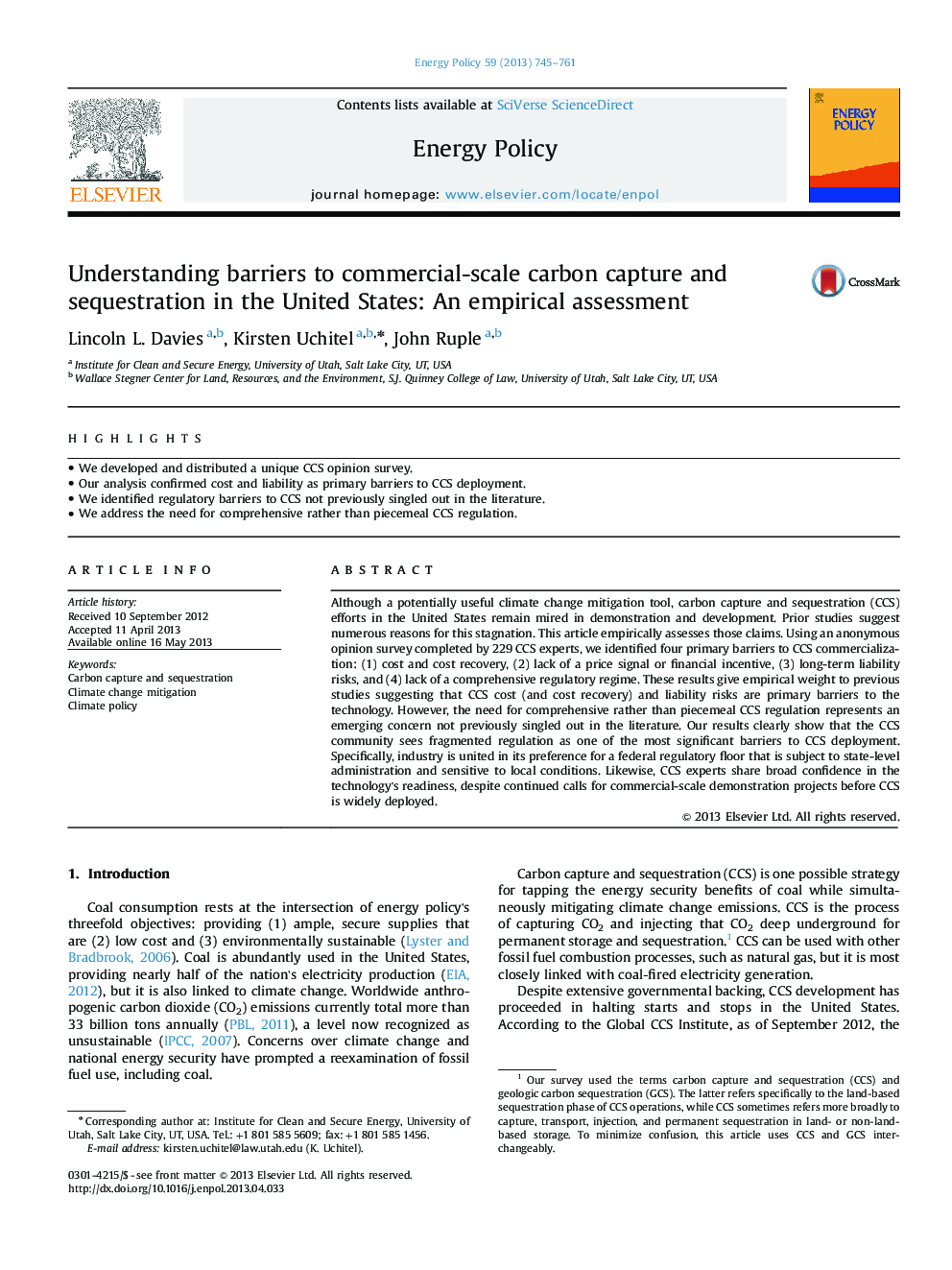| Article ID | Journal | Published Year | Pages | File Type |
|---|---|---|---|---|
| 7404711 | Energy Policy | 2013 | 17 Pages |
Abstract
Although a potentially useful climate change mitigation tool, carbon capture and sequestration (CCS) efforts in the United States remain mired in demonstration and development. Prior studies suggest numerous reasons for this stagnation. This article empirically assesses those claims. Using an anonymous opinion survey completed by 229 CCS experts, we identified four primary barriers to CCS commercialization: (1) cost and cost recovery, (2) lack of a price signal or financial incentive, (3) long-term liability risks, and (4) lack of a comprehensive regulatory regime. These results give empirical weight to previous studies suggesting that CCS cost (and cost recovery) and liability risks are primary barriers to the technology. However, the need for comprehensive rather than piecemeal CCS regulation represents an emerging concern not previously singled out in the literature. Our results clearly show that the CCS community sees fragmented regulation as one of the most significant barriers to CCS deployment. Specifically, industry is united in its preference for a federal regulatory floor that is subject to state-level administration and sensitive to local conditions. Likewise, CCS experts share broad confidence in the technology's readiness, despite continued calls for commercial-scale demonstration projects before CCS is widely deployed.
Related Topics
Physical Sciences and Engineering
Energy
Energy Engineering and Power Technology
Authors
Lincoln L. Davies, Kirsten Uchitel, John Ruple,
